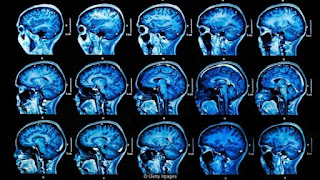Signs and Symptoms of Prion Disease
- Caring for a Person with Prion Disease
Whilst there is no proven treatment for prion disease, it is
possible to alleviate specific symptoms through medication, other therapies,
trying out different caring strategies and adapting the environment.
- Behavioural Symptoms
Often mood disturbance e.g. aggression or loss of interest
and personality changes persist into the illness. Anxiety and depression are fairly common
features. There may also be a lack of
social judgement and dis-inhibition.
People may prefer to keep to familiar routines, changes in the regular
daily pattern of events, or new faces may cause distress and anxiety.
- Communication Problems
Speech tends to become slurred (dysarthria) and quiet and as
a result speech may become hard to understand, making communication
difficult. There is often a reduction in
the content of language, word finding difficulties and there may be repetition
of words or sentences. Eventually the
person can become mute.
Problems develop with memory and thinking and there is often
a general decline in intellect. There
may be forgetfulness of day to day events, often accompanied by disorientation
and poor concentration or attention.
Everyday skills that we take for granted may be lost.
- Movement Problems
Initially there may be a disturbance in balance and gait,
leading to unsteadiness (ataxia).
Walking will therefore be affected and so extra care will have to be
taken to try to prevent falls.
Involuntary rhythmic muscle contractions leading to jerky movements
(myoclonus) and difficulties coordinating hand movements leading to apparent
clumsiness. Shakiness (tremor) and
stiffness (rigidity) are often seen. As
movements become increasingly uncoordinated the individual will need help with
carrying out their daily activities, for example, personal hygiene and use of
the toilet.
- Swallowing Problems
With the progression of the disease there may also be
difficulty in swallowing. There are a
number of strategies, which may make swallowing easier and an assessment by a
speech and language therapist can identify problems and give advice regarding
strategies to help.
- Visual/Perceptual Problems
Visual problems include double vision and difficulty moving
eyes to follow objects. Hallucinations are fairly common. There may be a failure to understand and
correctly interpret visual stimuli.
There may be misidentification of objects/people, whereby
something/someone may not be recognized accurately.
Very occasionally a person may suffer from seizures in the
later stages of the disease. Medication is available to help control seizures
should they occur.
#Alzheimers2018 is scheduled on 03-04 December, 2018 at Madrid, Spain with the theme of Leading #Advancements and #Remedies in the #Neurodegenerative Disorders.
To know more download our brochure via: https://bit.ly/2Ld1keT




Comments
Post a Comment